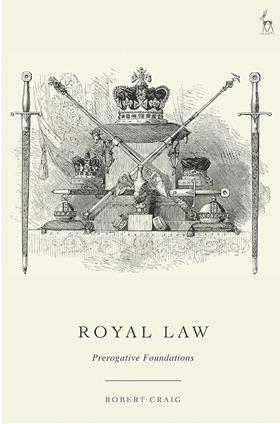Royal Law: Prerogative Foundations
Robert Craig
£90, Hart Publishing
★★★✩✩
Does anyone care about the royal prerogative? The role of monarchy is still important in our national life and is part of our ‘soft power’ abroad.
The Crown’s considerable influence is exercised almost exclusively on the advice of the Crown’s ministers. Until quite recently, a subject could not challenge an administrative decision, as the monarch’s ministers were exercising the Crown’s prerogative. However, The Crown Proceedings Act 1947 meant that claims could be brought against the Crown, abolishing the previous legal doctrine of Crown immunity.

This book seeks to examine the legal role and powers of the Crown. Royal prerogative refers to the powers the Crown has that are not dependent on parliament. These include the power to dissolve parliament, thereby calling a general election, and to declare war. If parliament’s assent is not required for war, then it is not debated, though there is said to be a recent ‘emerging convention’ that parliament will be invited to debate any declaration of hostilities. The power to dissolve parliament is not problematic, so long as the parties keep the convention that a prime minister would advise the monarch to call an election if they could not command a majority. But what if an unpopular administration struggles on in the face of overwhelming demands for change? What does the monarch do? Whose advice would be sought?
The royal prerogative rests also on the power to make grants of money ex gratia, to pardon offenders, and historically to appoint or dismiss the King’s justices. The monarch’s powers regarding the judiciary became a moot point in the 17th century when the King wanted to remove judges who upset him. It was only in the 18th century that ideas about separation of judiciary, executive and administration led to an independent judiciary.
This somewhat academic book, written by a constitutional law expert, is an interesting study, though it could perhaps have had more on the power to declare war.
David Pickup is a partner at Pickup & Scott Solicitors, Aylesbury































No comments yet